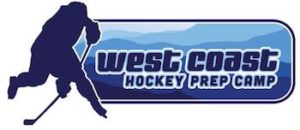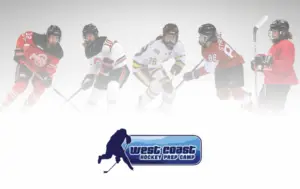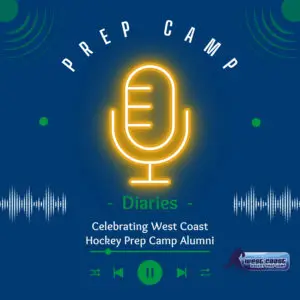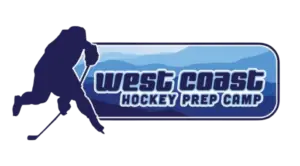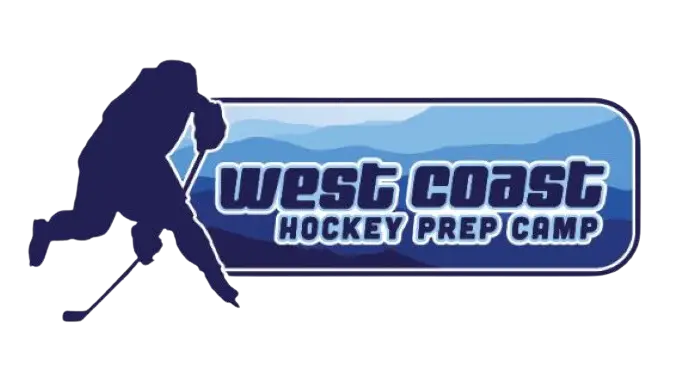As many of you know we are just thrilled to have Yale University Coach Ryan Donald in our corner, lending insights and perspective, as an Ivy League Graduate and now coach of his Alma Mater. I recently asked Ryan to reflect on his first season coaching at Yale. Still freshly out of a playing career, Ryan’s perspective transitioning from player to coach is a great one. Valuable insight and inspiration for our players, families, and coaches.
Year One Wrap Up, by Ryan Donald. Yale University Men’s Assistant Coach, NCAA Div I. Ivy League.
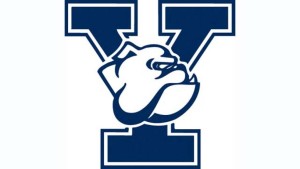 Coaching Division I College Hockey became a goal of mine only after I made the decision step away from a playing career. After committing to the decision to retire and head behind the bench, it was only natural to begin shaping my goals in this new endeavor. Much like a player has their own goals – which normally is along the line of “Play in the NHL!” – I set my sights on not just coaching NCAA College Hockey, but returning to my Alma Mater to coach at Yale. Although this was the goal I set for myself, I certainly didn’t envision it happening as quickly as it did. At the beginning of just my third season of coaching I was approached about the possibility of coming back to Yale as an Assistant Coach, and it was impossible to say no. Now, with my first season under my belt, I felt it was worthwhile looking back and sharing a couple of thoughts.
Coaching Division I College Hockey became a goal of mine only after I made the decision step away from a playing career. After committing to the decision to retire and head behind the bench, it was only natural to begin shaping my goals in this new endeavor. Much like a player has their own goals – which normally is along the line of “Play in the NHL!” – I set my sights on not just coaching NCAA College Hockey, but returning to my Alma Mater to coach at Yale. Although this was the goal I set for myself, I certainly didn’t envision it happening as quickly as it did. At the beginning of just my third season of coaching I was approached about the possibility of coming back to Yale as an Assistant Coach, and it was impossible to say no. Now, with my first season under my belt, I felt it was worthwhile looking back and sharing a couple of thoughts.
First of all, I think I learned more in this one season of coaching than I ever thought possible. Leave aside everything that I learned inside the boards from the best Head Coach in College Hockey, there was more than enough to keep me busy as my wife would attest. Everything from capturing video and sharing it, NCAA Compliance, Travel Advances, and Expense Reports, the list goes on and on. To say that it was a learning experience is definitely an understatement. Through it all I was fortunate to have a great support network within our program and athletic department to make this process as smooth as it was.
Everything else aside, the area that I think was the most eye-opening to me is the recruiting aspect of the game. It is no secret that recruiting is an important part of having a successful college hockey program, and I logged many miles both in the air and on the road in trying to get acclimated with the talent “pool”. It was great seeing and understanding the landscape of youth hockey across North America – heading to my first ever Minnesota High School hockey game was a memorable experience, and I now understand why all the guys I played with from Minnesota raved about their High School teams. Getting to nose around in different leagues and arenas was always fun, and I know I’ve only scratched the surface.
Notes for Players: How to Get Noticed
The biggest take-home that I want to convey here is the value in knowing what coaches appreciate in this process. With more and more pressure on coaches today to get results there is in turn more and more pressure to recruit the players that will buy into your system and program. Being the flashiest player or the one who tries to stand out by holding on to the puck and beating the extra guy often stands out for the wrong reasons. Obviously there are the exceptions to the rule, where some players are at an elite level and able to do so consistently, but for the most part this isn’t the case. Coaches are looking for players who exhibit the characteristics that show an ability to grow and develop. Does a player understand the game well? Is the player consistently being a good teammate or are they overly selfish? What kind of body language does the player exhibit? All of these are cues into what makes a player tick.
The way the College game is set up, particularly within the Ivy League, there are only so many roster spots available. Teams do not have the ability to trade players away or send them to the minors. When a player is recruited, programs are putting stock in the player developing and being a contributing member of their team for 4 years. To me, players that show an ability to grow, an interest in continued development, and consistent effort and enthusiasm are the ones that I have confidence will mature into building blocks of a successful program. It isn’t always the player with the most Goals or the most Points, but sometimes it is the lesser noticed player who stops on every loose puck or passes the puck without thinking twice that has the most potential to be successful in a College Hockey program. To me there is value in being a well rounded player and person, and this leads to a good chance for success at the next level and in life!
